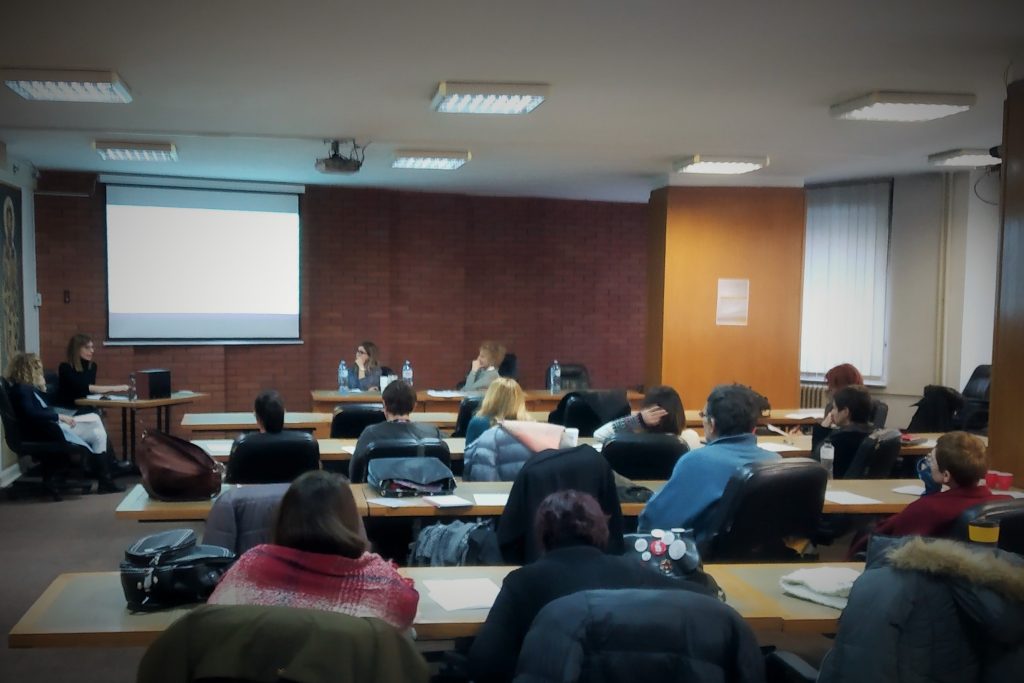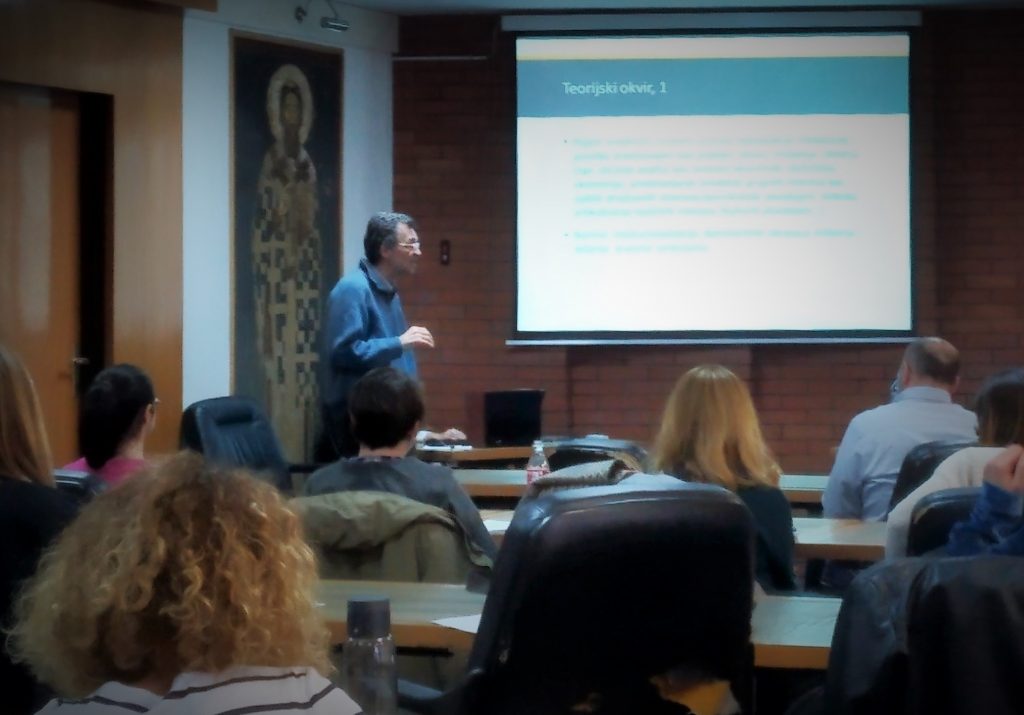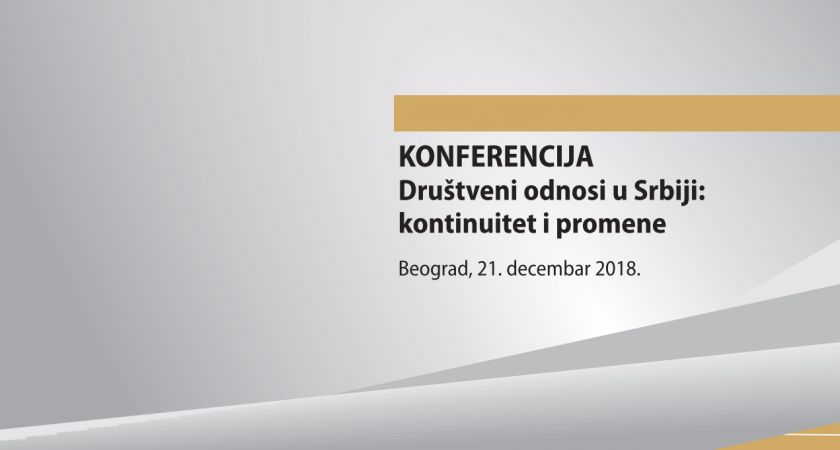The conference “Social relations in Serbia: continuity and change” was held at the Faculty of Philosophy in Belgrade, on December 21st 2018. Results were presented of the most recent survey research conducted by the Institute for Sociological Research during the spring of 2018 on a nationally-representative sample of 2200 respondents, on everyday life of households and individuals in the context of social changes in contemporary Serbia.
In four sessions altogether, the presentations covered substantial aspects of social life in Serbia in the light of consolidation of capitalist order, with particular focus on the influence of these social changes on the position of different social classes. Firstly, the material position of households, the structure of their property, income and expenses, as well as patterns of consumption, were investigated in detail in the papers presented. As the indicators showed, the class/status differences are not only prominent, but they have also assumed new forms and divergences.

Next, presenters pointed out the strategies and patterns of social mobility of individuals and groups, as well as their position created by unstable relations on the labor market. The findings showed an increase in work-intensive activities and investments, accompanied by the emergence, or continuation, of considerable social differences and differential chances in the labor market, stemming from the economic crisis and profound transformation of the social system resulting in public sector downsizing. The data registered a simultaneous increase in the self-reproduction of the middle-class and in upward mobility from experts’ to small-scale entrepreneurs’ cohorts, but also a gradual segmentation on the labor market. It is not just that there are major differences in adopting various labor-market strategies by actors with different socio-demographic characteristics, but the latter also emerge as structural constraints, meaning that lower skills, lower socio-economic status, and gender make actors more sensitive to shifts in the labor market, exposing these individuals to worse working conditions and less secure jobs.

Various aspects of political life, cultural patterns and changing value orientations that come with overall social change were discussed as well. The speakers emphasized new forms of political participation and new types of political affinities among young people, suggesting a “new politicization” of the young generation is underway. Another issue examined in conference papers was value orientations that inform action. Especially, the incoherence of value systems espoused by social groups in public and private spheres was noted. Last but not least, the presentations discussed methodological problems and critically reflected upon the data-collection process within this survey, highlighting fieldwork dynamics, varying levels of participation among different social groups and major differences in responding to survey questions.
The conference was organized within the project “Challenges of social integrations in Serbia: concepts and actors,” financed by the Ministry of Education, Science and Technological Development of the Republic of Serbia.

